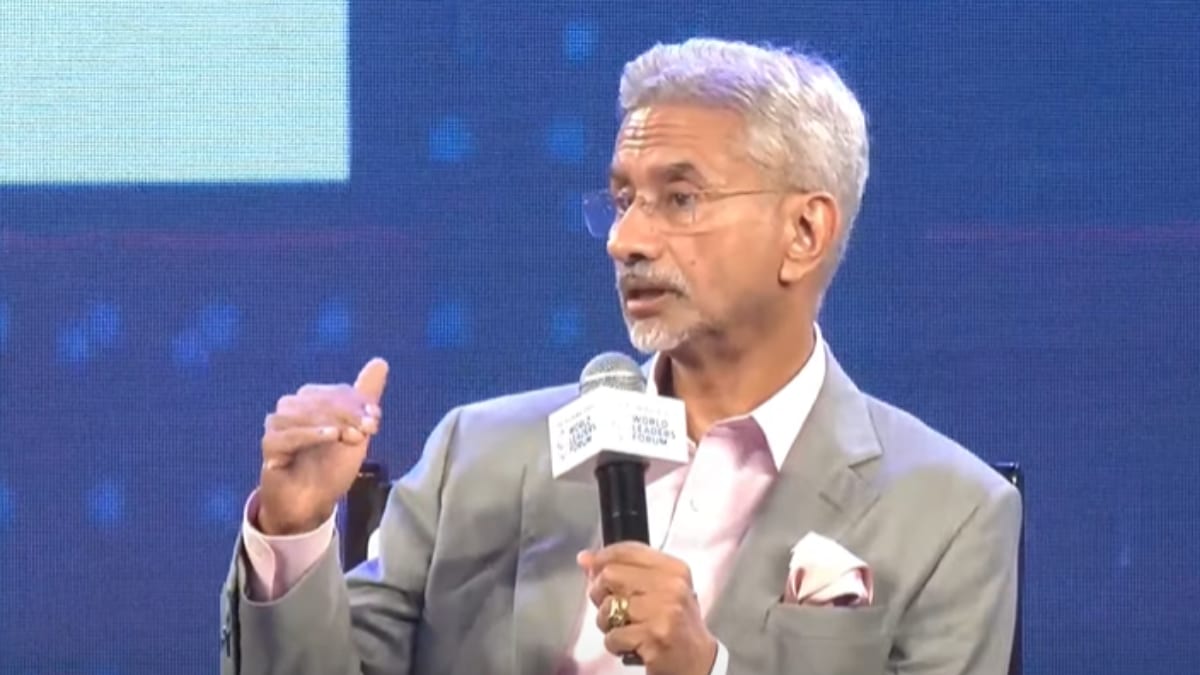India’s Unique China Problem: S Jaishankar’s Warning on Trade Deficits and Strategic Concerns
India’s External Affairs Minister S Jaishankar has unequivocally labeled China a “unique problem” during the ET World Leaders Forum. This assessment goes beyond merely highlighting economic challenges, pointing to a deep-rooted issue that transcends India’s borders and has become a global concern.
China’s “Unique” Economy and its Impact
Jaishankar pinpointed China’s unique economic and political structure as the source of the problem. Decades of overlooking China’s strategic advantages in a seemingly level playing field have contributed to substantial trade imbalances across the globe. The world is now facing the consequences of this historical neglect, evident in the widespread complaints about trade deficits with China. Jaishankar emphasizes that simply complaining won’t solve the issue, a robust domestic policy is essential.
Building Domestic Capabilities: The Key to Countering China’s Influence
Jaishankar stresses the urgent need to strengthen India’s domestic manufacturing capacity. He argues that a focus on building India’s own capabilities is vital to counterbalance China’s economic dominance. This means shifting focus towards creating a more balanced and self-reliant economic landscape within India. By bolstering domestic production, India can lessen its reliance on China and potentially reduce the trade imbalance.
A Global Concern: The China Challenge Beyond Borders
The concerns surrounding China extend far beyond India’s borders. Jaishankar underlines that this is a global issue, pointing to ongoing debates about China’s economic influence and its implications for national security in Europe and the United States.
China’s Influence: A Global Issue with Unique Dimensions
The “general China problem” extends beyond just trade imbalances. The concern encompasses China’s rising influence in various sectors, potentially impacting national security interests and geopolitical stability. It is evident that the world is increasingly aware of the need to navigate the complex landscape created by China’s rapid economic rise and its global ambitions.
Strategic Balancing Act: Foreign Investments and the Need for Caution
Jaishankar also stressed the need for a balanced approach to foreign investments, particularly from China. While he remains “pro-investment” and “pro-growth”, he acknowledges the need for cautious assessment, especially when it comes to China’s influence. This approach acknowledges the potential risks of unchecked Chinese investment while not rejecting potential benefits, striking a crucial balance.
Navigating Trade Dynamics: Striking a Balance Between Growth and Strategic Interests
Jaishankar’s call for a balanced approach signifies a shift in perspective. It is not about outright rejecting trade with China but about ensuring it doesn’t come at the cost of national security and economic stability. India is not alone in this quest for a balanced approach. Many countries face similar dilemmas as they navigate the complexities of engaging with China in an increasingly interconnected world.
Take Away Points:
- China’s unique economic and political model has created a “unique problem” that extends beyond India’s borders.
- Ignoring China’s strategic advantages in the past has resulted in substantial trade deficits globally.
- India needs to build its domestic manufacturing capabilities to counter China’s economic dominance.
- The concerns surrounding China’s influence are not limited to India and are being felt globally.
- A balanced approach to foreign investments, particularly from China, is crucial to safeguarding national interests and fostering a stable economic environment.
- The world is grappling with the challenge of navigating a complex geopolitical landscape shaped by China’s rising economic and strategic power.




